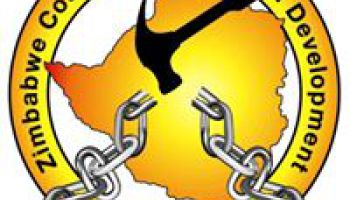Govt has almost exhausted social spending: Zimcodd
THE Zimbabwe Coalition on Debt and Development (Zimcodd) claims the government has almost exhausted all social protection resources without bringing any meaningful social transformation.
In the 2023 national budget, a total of ZWL50,4 billion had been set aside for the provision of social protection programmes in 2023.
However, the depreciation of the local currency by over 600% eroded that initial expenditure, Zimcodd in its latest Public Resources Management Situational Report covering August.
“In the month of August, the government published the mid-term review budget statement which examined how the government has utilised the 2023 budgeted funds so far. Of interest was government`s vague statement on social expenditure as the statement did not provide intimate details with respect to social spending,” Zimcodd said in the report.
“The unavailability of such critical data is not a new phenomenon in Zimbabwe’s public finance management as the government benefits from its opaqueness. The mid-term review shows that the government ‘disbursed ZWL$48,2 billion for social protection programmes during the first half of the year, towards Beam (ZWL$36,1 billion), drought mitigation (ZWL$6 billion), harmonised cash transfers (ZWL$3,2 billion), among others’.”
Zimcodd said the government had almost exhausted social protection resources without bringing any meaningful social transformation.
“The evidence from the review of the 2023 national budget also shows a 56,9% over-expenditure in the Basic Education Assistance Module (Beam) which translates, to ZWL13,1 billion. While drought mitigation (DM) and harmonised cash transfer (HCT) utilised approximately 50% and 34,7% of the allocated funds respectively,” Zimcodd said.
“Thus, Beam, HCT, and DM mid-term expenditures are approximately ZWL45,3 billion which is less than the submitted social protection figure of ZWL48,2 billion. Therefore, instead of using an opaque statement like “among others”, it is critical that the government clearly specify what the ZWL$2,9 billion variance was used for.”
With the depreciation of the local currency, disposable incomes shrank while wages have been severely eroded leaving not only the rural population but urbanites exposed to a high cost of living.
According to Zimcodd, Public Resources Management Situational Report (SitRep) evaluates how well central government and local government use their resources to provide the highest quality services.
“The SitRep covers issues such as trade justice, sustainable livelihoods, fiscal accountability, responsibility, public debt, public service delivery, climate change and domestic resource mobilisation,” Zimcodd said.-newsday











